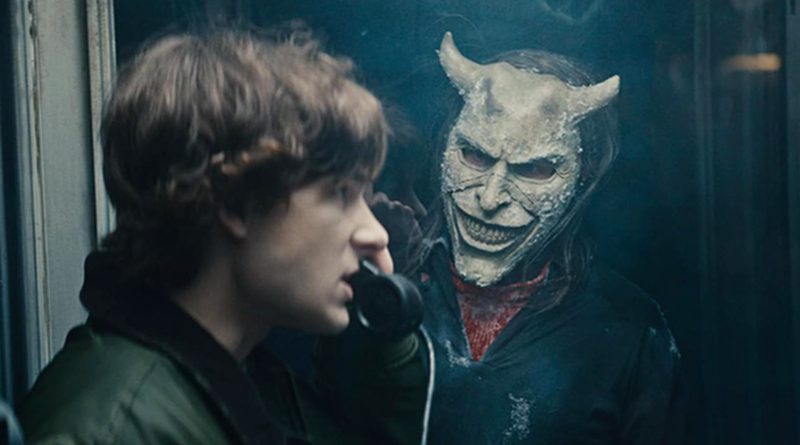Black Phone 2 Review: Scott Derrickson Delivers a Grim, Nightmare on Elm Street-Style Supernatural Horror Sequel
Returning writer-director Scott Derrickson embraces one of the oldest tricks in the horror-movie playbook in Black Phone 2. And that is, evil never truly dies in the horror genre, giving Derrickson and co-writer C. Robert Cargill a leeway to bring Ethan Hawke’s The Grabber back to life. Sure, the last time we saw him, the masked killer ended up dead at the hands of Finney (Mason Thames). The latter has become an unlikely hero for stopping The Grabber, who was responsible for abducting the children that shocked the North Denver suburban neighbourhood for years.
The nightmare is now over, even though the aftermath has since scarred Finney into lashing out at the kids at school and smoking marijuana to numb himself. And the titular phone? It still rings, while his younger sister Gwen (Madeleine McGraw) is somehow disturbed by a series of macabre dreams. Interestingly, the sequel shifts its focus predominantly to Gwen, making her the central figure of the story. This gives the sequel a refreshing change of pace and is even better than I expected.
I get that the first movie was a big surprise hit both critically and financially, grossing over US$160 million on a US$18 million budget. But I always find The Black Phone overrated, especially given its wildly uneven tone in blending a mean-spirited 1970s horror thriller with dark comedy and supernatural elements.
This time, the sequel dials up on the supernatural angle, which fits well with Gwen’s arc. Her recurring dreams not only cause her to sleepwalk but also involve something far more sinister in the campground at the wintry Alpine Lake. This leads to her insistence on finding out the truth with the help of her new boyfriend, Ernesto (Miguel Mora) and Finney, who reluctantly tags along for the ride to the aforementioned frozen lake. Despite the severe blizzard conditions, the three manage to reach the destination. From here, they meet the camp supervisor Armando (Demián Bichir) along with his niece, Mustang (Arianna Rivas) and co-workers, Kenneth (Graham Abbey) and Barbara (Maev Beaty).
The first half is more of a slow-burn, which takes its time building up the story. I admit it tends to get heavy-handed every now and then, while Gwen’s on-and-off dreams are repetitive. The pace is equally laborious, almost making me worried that Black Phone 2 might be heading for a disaster. Thankfully, Derrickson manages to pick up the slack as the plot thickens with the ominous return of The Grabber.
No longer a living being but rather a malevolent spirit who’s now out for vengeance against Finney, while tormenting everyone else at Alpine Lake. He’s angrier than ever, which, at one point, Derrickson took a cue from Poltergeist, resulting in one of the most visceral set pieces in Black Phone 2. Hawke, whose facial appearance is either fully or partially obscured by the devil-horned mask, is more effective this time around in reprising his role as The Grabber. His presence may have been limited when compared to the first movie, but he made the best use of his screentime, with his menacing voice alone is enough to make him such an intimidating antagonist.
Derrickson doesn’t shy away from gore and violence, particularly in the high-stakes second half. The comedy remains present in this sequel, but I’m glad it doesn’t feel either overwhelming or awkwardly misplaced. Madeleine McGraw may have been moving up to the lead role as Gwen, but the sequel doesn’t neglect Mason Thames’s Finney, who remains pivotal here. The sister-brother dynamic between their characters is stronger than ever, while it’s hard not to root for their plight and determination to overcome the forces of evil that keep haunting them. It helps that Derrickson leaves ample room for the rest of the cast, including Demián Bichir, who gives solid support as Armando.
Beyond the story of good vs. evil and bereavement, the sequel adds a much-needed emotional centre revolving around the past and the connection that ties to Gwen’s dreams. Black Phone 2 also benefits from a distinct visual palette, mixing the grainy feel and look of the sequel’s early 1980s setting and the surreal wintry landscape as the backdrop of a snowbound camp surrounded by a wide, frozen lake.





